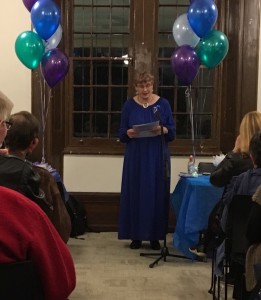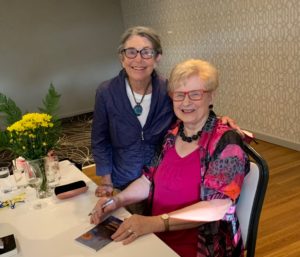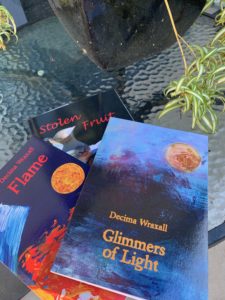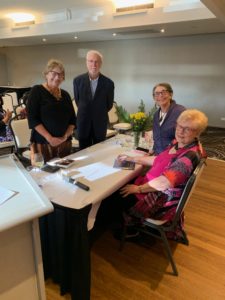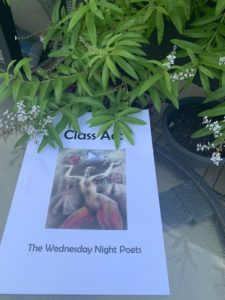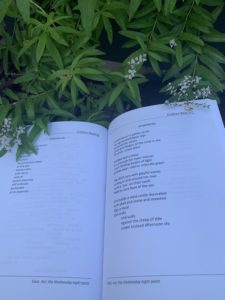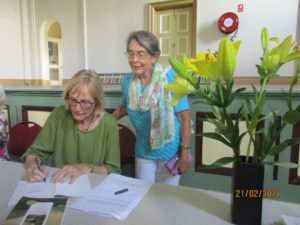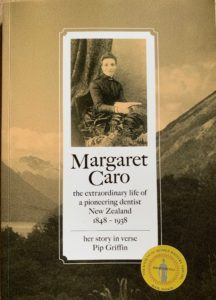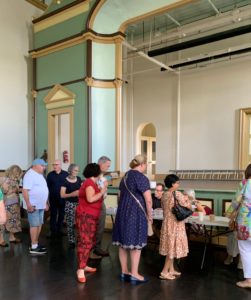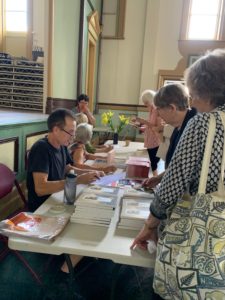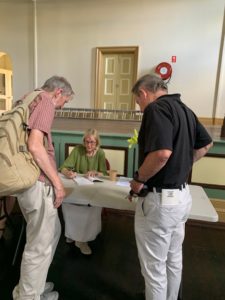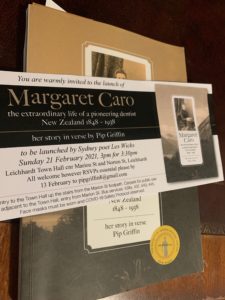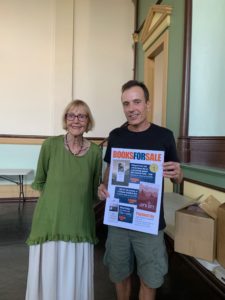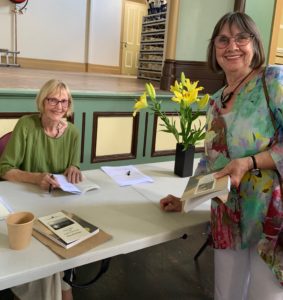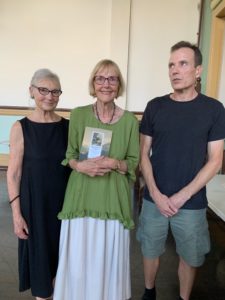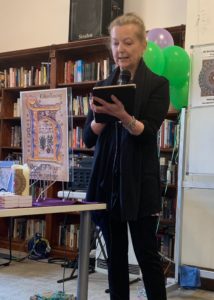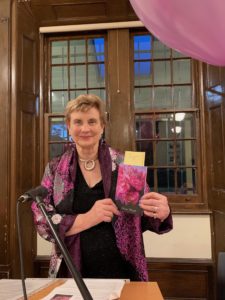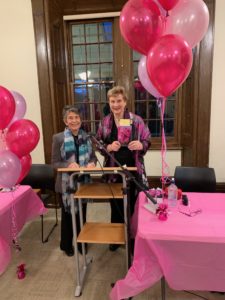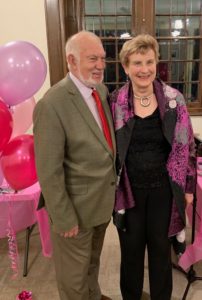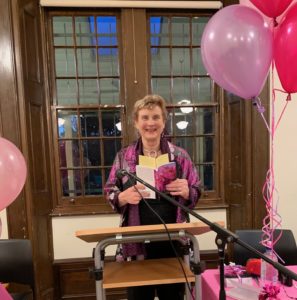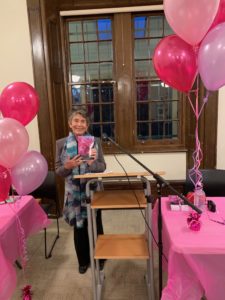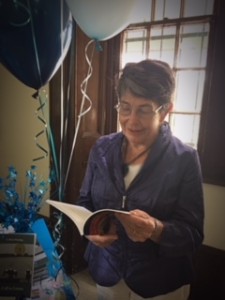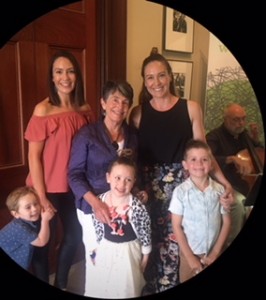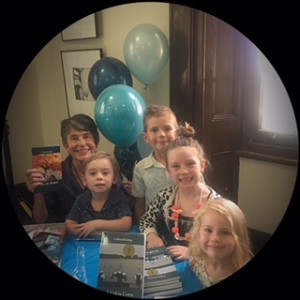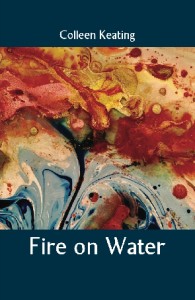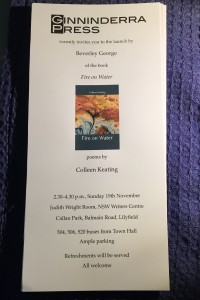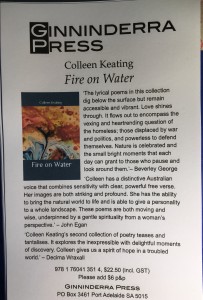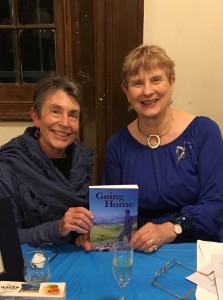
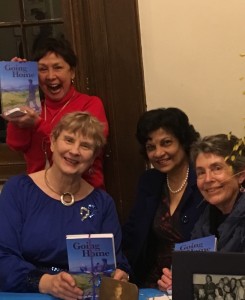
It was an honour to launch Decima’s latest book ‘Going Home’ a second in a duo of family history. Speeches, readings from the new book, music, delicious food and plenty of bubbly flowed to make a great night great, and to say well done Decima.
Thursday last ( 19th July 2018) was a great evening of celebration for Decima as it has been ‘the long haul’ to get her latest book out there.
I have watched, admiring her tenacity and determination and like a cheer-leader encouraging from the side line, aware of the work, time and effort it takes. And the time finally arrived.
It is a bit like childbirth. There is the struggle and pain and then the joy. And on Thursday evening there was joy with a wonderful sense of camaraderie as we gathered, Decima’s daughter and family from UK, cousins from Melbourne and north coast a few nurse friends from the old day and of course, us the writers from the various groups Decima belongs to – the WWN at Rozelle, the SWW from Mitchell Library, U3A poetry Appreciations group .
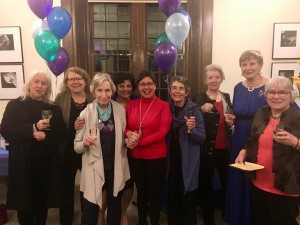
The launch speech for ‘Going Home’
by
Colleen Keating 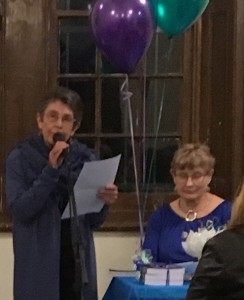
Welcome to you all.
My name is Colleen Keating and I feel honoured to be asked to launch ‘Going Home.’
But first, please let us pause a moment to acknowledge the Gadigal people. We are gathered on land of the Eora nation, and pay our respects to traditional custodians, past and present.
I also feel happy to mention we are gathered in the Judith Wright Room, one of our greatest Australian women poets
Decima is a friend and fellow writer. She inspires me and inspires all of us in her loyalty and commitment to her writing. Decima’s writing occupies a sacred space in her life.
Her latest book ‘Going Home’ is the second and final in a duo.
Decima has had many short stories and poems published in Journals and Anthologies. She has co-edited two Anthologies of prose and poetry for the Womens Writers Network, here at the Writers Centre.
Her first book, Black Stockings, White Veil celebrated the 50th Anniversary of her Graduation from RPA. It was a finalist in the Indie Book Awards for Historical Fiction, and is now in its second edition.
Letters from a Digger appeared as the first part of the duo.
She has had her first book of poetry accepted for publication by Ginninderra Press to be out mid 2019.
Going Home is Gordon’s story, a remarkable, loveable man, bigger then life.
It is a story wonderfully told, set in the Australian context at a time many of us here remember.
In the hero’s journey there is the wound. Decima’s writing carries that intriguingly, a life shadowed with a secret and sense of loss, with a pinch of serendipity, including the arrival of an inspirational teacher just at the right time.
At a recent poetry symposium in Adelaide that Michael and I attended it was discussed how Fiction and Non Fiction, are both the same and different, in telling the Truth. It made me think of ‘Going Home.’ It’s evident that Decima, has assiduously researched the facts to ensure both accuracy and a good story.
Historic fiction puts flesh on the bone, transforms anecdote into drama, uses suspense, stimulates our imagination. Going Home, tells Gordon’s story honestly. There are no punches pulled. It explores the powerlessness engendered by serious illness and the courage to accept an unwelcome diagnosis.
You hear and smell see and taste the scenes, as this moving tale unfolds.
The following passage set after the death of Rabbi Shomer, (Gordon’s mentor) embodies a moment of pain in his journey:
Gordon felt the Rabbi everywhere and nowhere. In the following days, the house echoed with his voice. At the same time, the silence was palpable. Sometimes Gordon rushed back from school, bringing news of the day for the Rabbi. And recalled his friend had passed. He ran faster so he wouldn’t cry. And arrived breathless, dry-eyed.
It broke Allie’s heart to see his sad face. Her own sorrow could be borne, if only she could do more to help Gordon. She brought him milk and biscuits, saying, ‘I wonder if you’d like to hear some music?’ He nodded, fearing tears should he speak.
Even the ‘taste of milk and biscuits’, the comfort food of after-school caught me.
Albus Dumbledore in Harry Potter says: “Words are in my not-so-humble opinion, our most inexhaustible source of magic” And ‘Going Home’ has the magic of an historic 20th century read. For many of us it takes us down memory lane of late last century. It is a book that will be cherished by Melissa and Jason . You must be very proud of your Mum for bringing this story to fruition. And to Dessie and Gordon’s smart and gorgeous Grandchildren Miranda, Toby, Ella and Harry this is a gift for you.
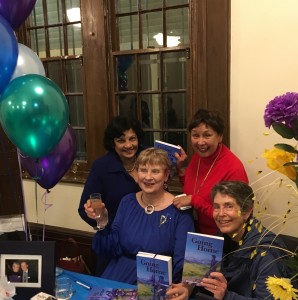
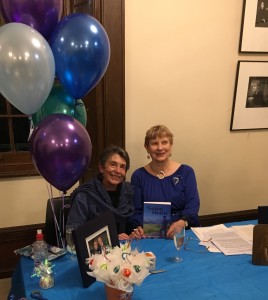
I congratulate Decma on this fine achievement and proudly declare Going Home launched. May it have many enjoyable reads.
Now i would like to call on the writer of the day, the author Decima Wraxall. 